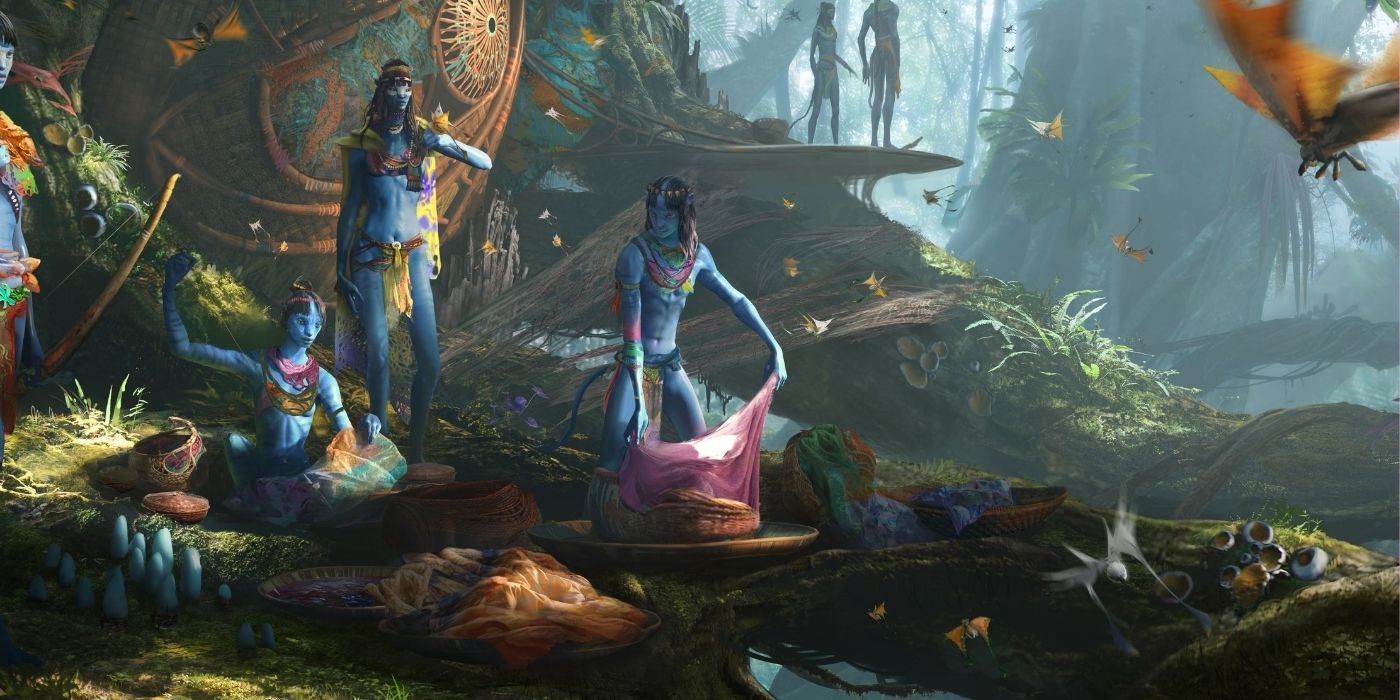Summary
- The Na’vi clans in James Cameron’s
Avatar
have unique cultures and values, with each clan distinguished by their environment and clan values. - The Omatikaya clan is the main clan in the first
Avatar
movie, known for their spirituality and impressive textile and weaving skills. - The Metkayina clan is an ocean clan in
Avatar: The Way of Water
, serving as fierce protectors of their own culture and the gentle whale-like creatures called Tulkuns.
Created for the extensive world of James Cameron’s Avatar, all 20 Na’vi clans bring something unique to the franchise. The Na’vi, whose name translates literally as “the people” in the Na’vi language, are cyan-skinned humanoid species living on the distant moon Pandora. James Cameron (via SFGATE) recalls his inspiration for the Na’vi came from a dream his mother had of a “12-foot-tall blue woman.” He then incorporated this dream into a screenplay he wrote in the mid-’70s, holding onto the idea for over 30 years before making Avatar.
The Avatar franchise has far from revealed all the secrets of the 20 Na’vi tribes. The Na’vi in Avatar strongly values the complex energy network of life on Pandora. They pray to the goddess Eywa, with whom they have a physical connection through the sacred Tree of Souls. The Avatar Na’vi clans are heavily inspired by cultures on Earth. For example, the 2,600-word Na’vi language was developed by USC linguist professor Paul Frommer, using sounds from an array of indigenous languages. Pandora’s Avatar Na’vi clans hold a lot of cultural similarities to each other, but every Na’vi tribe is distinguished by their environment and clan values.
|
Na’vi Clan |
First Appearance |
Key Traits |
|---|---|---|
|
Omatikaya |
Avatar |
The main Na’vi tribe in the Avatar franchise. |
|
Metkayina |
Avatar: The Way of Water |
A water-based Na’vi tribe. |
|
Olangi |
Avatar |
A nomadic, plains-based tribe of Na’vi horseriders. |
|
Tayrangi |
Avatar |
Cliff-based Na’vi who specialize in aerial combat. |
|
Tawkami |
Avatar: The Game (Nintendo DS) |
A tribe of Na’vi that highly value intellectual research. |
|
Tipani |
Avatar: The Game (Nintendo DS) |
The first Na’vi tribe that made contact with humanity. |
|
Anurai |
Avatar: The Game (PSP/Nintendo Wii) |
Na’vi artisans who specialize in fashioning items from bones. |
|
Li’ona |
Avatar: The Game (PSP/Nintendo Wii) |
One of the Na’vi tribes worst impacted by the arrival of humans. |
|
Hulanta |
Avatar: Reckoning |
A Na’vi tribe who inhabit the wetlands. |
|
Huyuticaya |
Activist Survival Guide |
Warpaint wearing Na’vi who have an affinity for viperwolves. |
|
Ni’awve |
Avatar: Reckoning |
The Na’vi tribe that may not have originated on Pandora. |
|
Kekunan |
Toruk – The First Flight |
Expert Ikran riders known for colorful attire. |
|
Aranahe |
Avatar: Frontiers of Pandora |
A tribe of Na’vi that are known for their expert silk-weaving skills. |
|
Zeswa |
Avatar: Frontiers of Pandora |
Expert direhorse riders from the upper plains of Pandora. |
|
Kame’tire |
Avatar: Frontiers of Pandora |
One of the most secretive Na’vi clans. |
|
Sarentu |
Avatar: Frontiers of Pandora |
A tribe of Na’vi storytellers founded by a member of Omatikaya. |
|
Mangkwan |
Avatar: The Last Shadow |
One of the lesser-known Na’vi clans, and allies of the Omatikaya. |
|
Rey’tanu |
Avatar: Reckoning |
Agricultural Na’vi from the highlands of Pandora. |
|
Toma’ta |
The Pandorapedia |
A Na’vi tribe that’s only mentioned briefly and has yet to appear properly. |
|
Ash People |
Avatar: Fire and Ash |
The Na’vi tribe set to be introduced in Avatar 3 |
Related
Avatar: Fire And Ash – Release Date, Cast, Story & Everything We Know About Avatar 3
Avatar: Fire and Ash will be the middle chapter of James Cameron’s 5-movie saga, but what does the third movie have in store for the Na’vi?
Omatikaya Clan
The Main Clan In The First Avatar Movie
Avatar’s main clan is the Omatikaya, the clan Jake and Neytiri belong to. While Avatar: The Way of Water expanded the franchise by focusing on the Metkayina clan, the Omatikaya was the only Na’vi clan to whom the first Avatar gave any substantial screen time. For this reason, it may be easy to, unfortunately, generalize all the Avatar Na’vi clans’ cultures with the Omatikaya’s way of life.
Notable Omatikaya Na’vi characters in Avatar and Avatar 2 include Neytiri (Zoe Saldaña), her mother Mo’at (CCH Pounder), who serves as the clan’s spiritual leader or “Tsahiki,” and the “Olo’eyktan“ or clan leader Eytukan (Wes Studi), who was replaced by the powerful warrior Tsu’tey (Laz Alonso) upon his death. Human Jake Sully (Sam Worthington) becomes a part of the Omatikaya and lives with them full-time once he permanently transfers his life energy to his Na’vi avatar body. The Omatikaya are renowned for their impressive textile and weaving skills.
Hometree
is described in
Avatar’
s official
Activist Survival Guide
(ASG) as being ”
two to three times the height”
Most notably — as a weird deleted Avatar scene would have further proved — the Omatikaya are intensely spiritual. Hometree, or Kelutral, was incredibly important to the Omatiaya. Hometree is described in Avatar’s official Activist Survival Guide (ASG) as being “two to three times the height” of Redwoods. The ASG also notes that the Omatikaya call themselves the “Clan of the Blue Flute,” for they believe that Eywa created a blue flute from Hometree where the Omatikaya live.
Reserved only for spiritual occasions, the Omatikaya’s Olo’eyktan will play the blue flute to communicate with spirits, ancestors, and Eywa herself. It isn’t considered a musical instrument, despite its name and melodic nature. Out of the Avatar Na’vi clans, the Omatikaya will also fashion their bows from Hometree, only once they’re considered ready to do so. The destruction of Hometree in Avatar not only left the Omatikaya homeless, but it affected their very identity.
Jake Sully’s life with the Omatikaya strongly differs from his Earth life shown in an Avatar deleted scene. Neytiri teaches him how to ride banshees, known as i kran, and direhorses. Jake also learns from Neytiri about Eywa, Hometree life, Pandora’s energetic network, and the plentitude of jungle resources. The Omatikaya learned English and human customs from the late Dr. Grace Augustine (Sigourney Weaver), who wanted to learn more about the Na’vi people and taught them her ways as a means of extending goodwill.
Metkayina Clan
The Water Clan From Avatar: The Way Of Water
The Metkayina is an ocean clan on the eastern coast who welcome Jake and Neytiri’s family after Jake’s guerilla campaign against the RDA goes haywire, and Spider is kidnapped. Fearful that Spider knows the family’s location. Jake and Neytiri exile themselves from the Omatikaya and flee to the eastern seaboard, where they are taken in by the tattooed Metkayina Chief Tonowari. Tonowari and his wife Ronal are warriors themselves who send their children Ao’nung and Tsireya on expeditions with their direhorses.
As fierce protectors of their clan and way of life, Tonowari and Ronal have reservations about Jake’s family’s ability to acclimate to their oceanic culture. However, during The Way of Water, this coastal Avatar Na’vi clan is forced to intervene when the RDA starts hunting down the peace-loving Tulkuns — a gentle whale-like and sentient creature that the Metkayina see as their spiritual brethren.
The RDA wishes to slaughter Tulkuns for a substance known as amrita, which has anti-aging effects. In Avatar: The Way of Water‘s ending, the RDA is stopped — for now — and the Metkayina clan promises Jake and Neytiri’s family home before Jake vows to resume his campaign against the RDA.
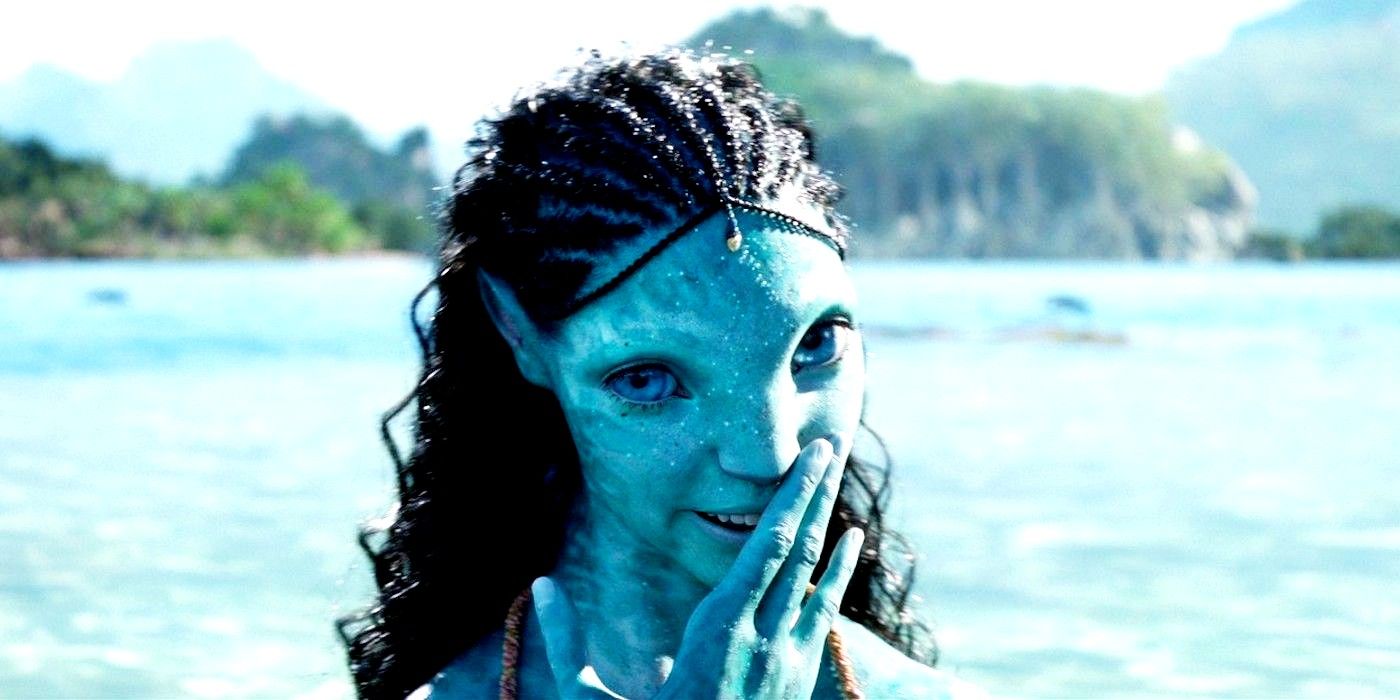
Related
Avatar 3 Risks Not Including The Way Of Water’s Most Interesting Characters
Avatar: The Way of Water’s memorable Metkayina heroes, Tsireya and Ronal, played a major role in the sequel, but Avatar 3’s story may exclude them.
Olangi Clan
Appeared Briefly In The First Avatar Movie
There are several tribes of Na’vi who appear in Avatar that aren’t given names, though do have distinct identities fleshed out by various pieces of franchise tie-in media. While not mentioned explicitly by name, the Olangi clan is present in Avatar as the clan of Na’vi horse riders who inhabit the many plains of Pandora.
Although many of the Avatar Na’vi clans rely on riding, the direhorse is pivotal to the Olangi’s nomadic way of life. The Olangi have different resources at their disposal than the jungle-dwelling Omatikaya, and as such don’t inhabit a fixed location. Instead, Na’vi of the Olangi tribe relocate frequently to follow the various animals they hunt.
During Avatar’s final battle, the Olangi proved they’re useful in ground combat, fighting alongside Norm Spellman (Joel David Moore) in avatar form. Because Avatar 2 focuses on Pandora’s oceans, the Olangi aren’t developed much further in the sequel.
Tayrangi Clan
A Clan Not Shown Much In The Avatar Movies
Like the Olangi, the Tayrangi clan isn’t mentioned explicitly by name as one of the Avatar Na’vi clans on Pandora. The Tayrangi live on the Eastern Sea’s cliffs and value the Ikran for travel in a way that the Olangi rely on direhorses. The Tayrangi were useful in aerial combat during Avatar’s final battle, and managed to destroy multiple RDA vehicles.
Because of their Ikran–riding prowess, the Tayrangi clan is similar to the Kekunan clan of the north. The Tayrangi people are also known for their swimming skills and their generally eclectic, independent nature. This Na’vi tribe is led by a female Na’vi named Ikeyni, who is their Olo’eykte (the Na’vi term for tribal chieftain or ruler).
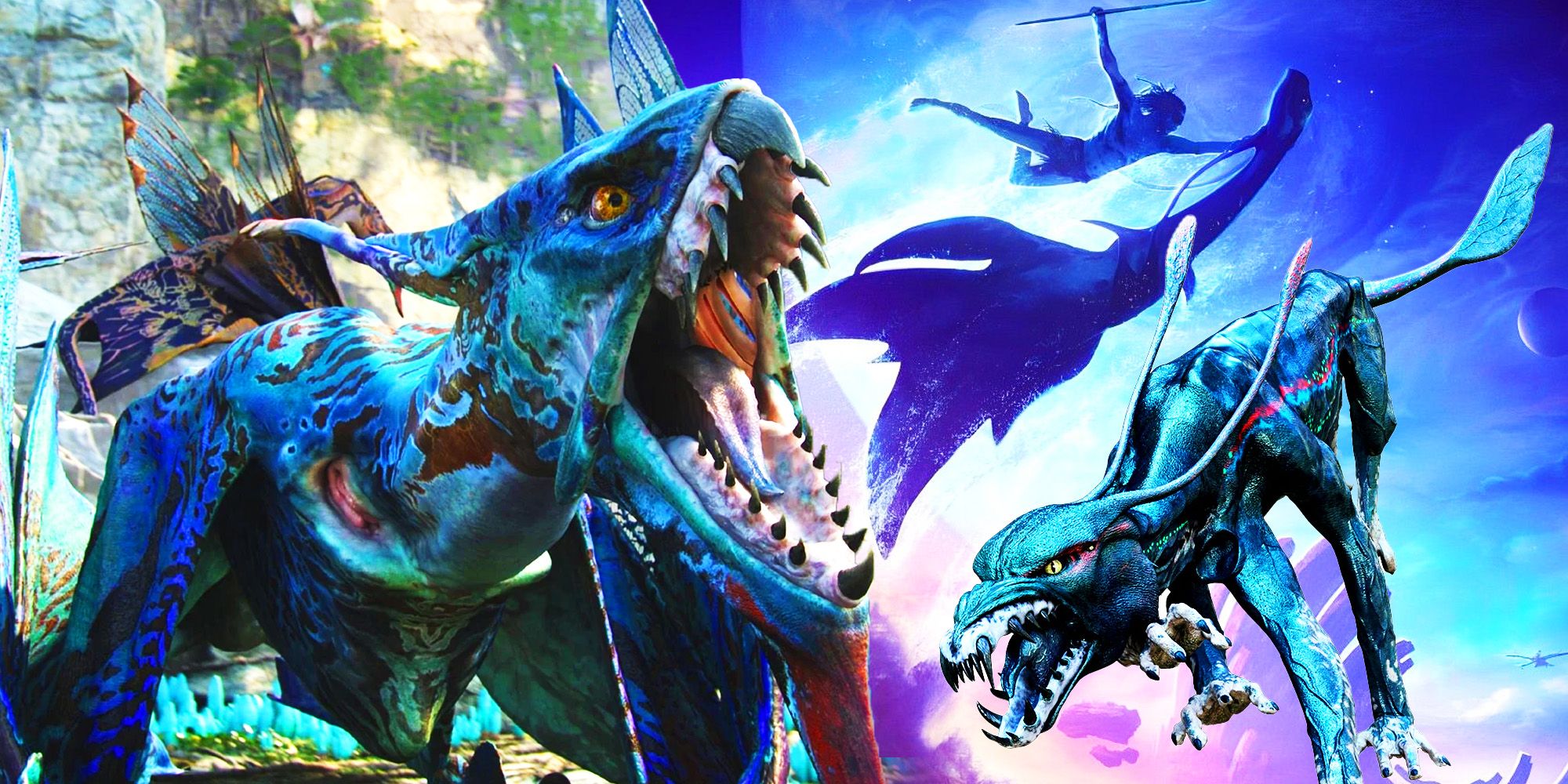
Related
Avatar: 30 Pandora Animals From The Movies Explained
Avatar introduced the world to a variety of new and exciting creatures all across the Pandoran landscape, with unique traits and looks for each.
Tawkami Clan
First Appeared In James Cameron’s Avatar: The Game NDS
While Avatar introduced a couple of other Avatar Na’vi clans, Avatar video games bring many of Pandora’s other clans to life. While Avatar doesn’t show life on Earth, renamed Terran, the Na’vi mirror humans in many ways, with the Tawkami expressing another human cultural trait not seemingly recognized by other clans — the pursuit of knowledge.
Known as the Sky Seer clan, the Tawkami value knowledge, record-keeping, chemistry, and research. They developed a writing system for the Na’vi language that is yet to be seen in the movies. Like the Omatikaya, they live in the jungle, though much further beyond the treeline than Jake Sulley’s tribe. Their village is known as Greenhome — an appropriate name given that the Tawkami see themselves as reponsible to maintaining the ecosystem of Eywa.
Tipani Clan
First Appeared In James Cameron’s Avatar: The Game NDS
The Tipani Na’vi tribe are also known as “the clan of silent war”, which explains a lot about their personality, culture, and history. Explored further in James Cameron’s Avatar: The Game, the Tipani clan was the first of the Avatar Na’vi clans to make contact with humans. They are known for their fearlessness and tact in battle and are regarded as strong, skilled warriors.
Rather than residing in a single location like the Omatikaya, the Tipani clan divides itself into separate villages, with around 12 dotted across the jungles of Pandor. The Tipani are also the only known of the Avatar Na’vi clans to wear actual armor in battle. They are also the fiercest hunters, and their children are trained from a very young age as warriors. Most of what is known about them comes from the game, which is now considered non-canon.
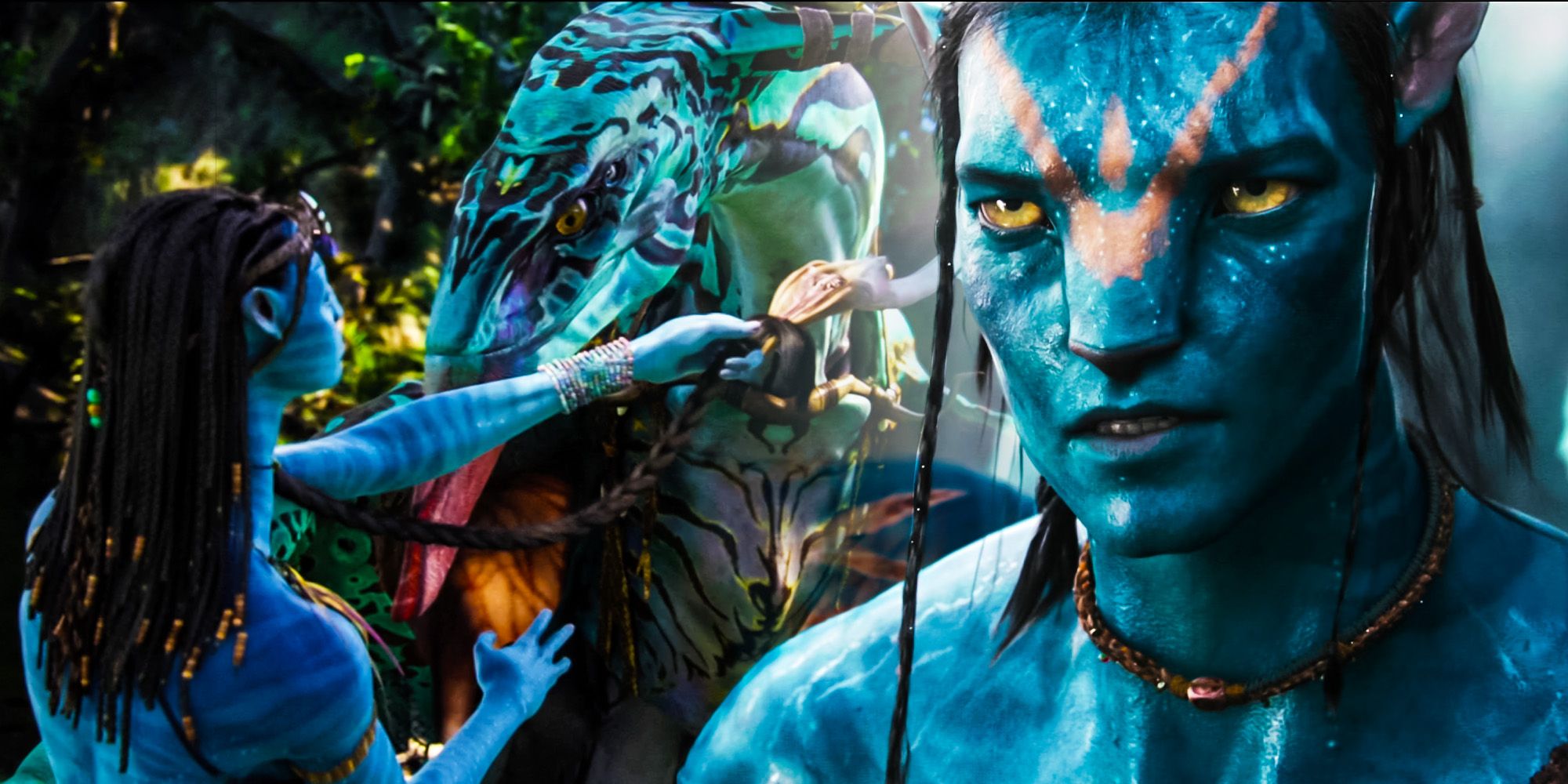
Related
Avatar: How the Na’vi Bond With Pandora’s Wildlife
In Avatar, the Na’vi bond with Pandora’s wildlife via Tsaheylu and the linking of neural queues, a process inspired by real-life science.
Anurai Clan
First Seen In The Wii/PSP Version Of Avatar: The Game
While Avatar: The Game is no longer considered canon, several Na’vi tribes it introduced could still appear in future movies. Of all of these, it’s perhaps the Anurai that are the most likely candidates to appear on the big screen, as they’re incredibly distinctive. The Anurai are an artisanal clan skilled in using bones. They revere a creature known as the Thanator, and find their homes in secluded valleys on Pandora.
So far, the Anurai have only been mentioned in James Cameron’s Avatar: The Game and Cirque du Soleil’s Toruk – The First Flight. They are also in constant danger from the Resources Development Administration thanks to their valuable artifacts. The Anurai were the clan at the center of narrative of Avatar: The Game, as it was the surviving members who sought revenge when their clan was slaughtered by Sean Wallen for their artifacts to sell on Earth’s black market.
Li’ona Clan
First Seen In The Wii/PSP Version Of Avatar: The Game
The Li’ona are another clan from James Cameron’s Avatar: The Game, and technically aren’t considered to be canon. There’s also little to visually distinguish them from the likes of the Omatikaya, though their story is definitely a tragic one. Na’vi in the Li’ona tribe have perhaps suffered the most from the arrival of humanity on Pandora, as the clan lives in poor conditions near human factories.
Thankfully, Rai’uk (the hero of Avatar: The Game) helped defend them against their human antagonists. While their clan was dying off thanks to the rivers running dry and the flora and fauna dying off. When Rai’uk took the battle to the humans and destroyed the dam, their rivers began running again and he saved his clan. Rai’uk eventually rejected the offer to join the clan and set off to help other Avatar Na’vi clans against the human attackers.
Hulanta Clan
Appeared In The Avatar: Reckoning Mobile Game
From the Avatar: Reckoning mobile game, the Hulanta are considered a Wetlands clan. Much like the Metkayina introduced in Avatar: The Way of Water, the Hulanta are adapted for aquatic life. However, they aren’t genetically adapted to an amphibious lifestyle in the same way as their ocean-dwelling cousings.
This Na’vi tribe considered water to be sacred, and whirlpools featured heavily in their iconography. They were also tragically impacted by the arrival of Huamnity on Pandora, as they were forced from their homes thanks to bombings from the RDA. They are also experts in both pottery and weaving, and they are not a warring clan. While Avatar: The Way of Water showed several water clans, the Hulanta weren’t one of them, and only existed in the game.
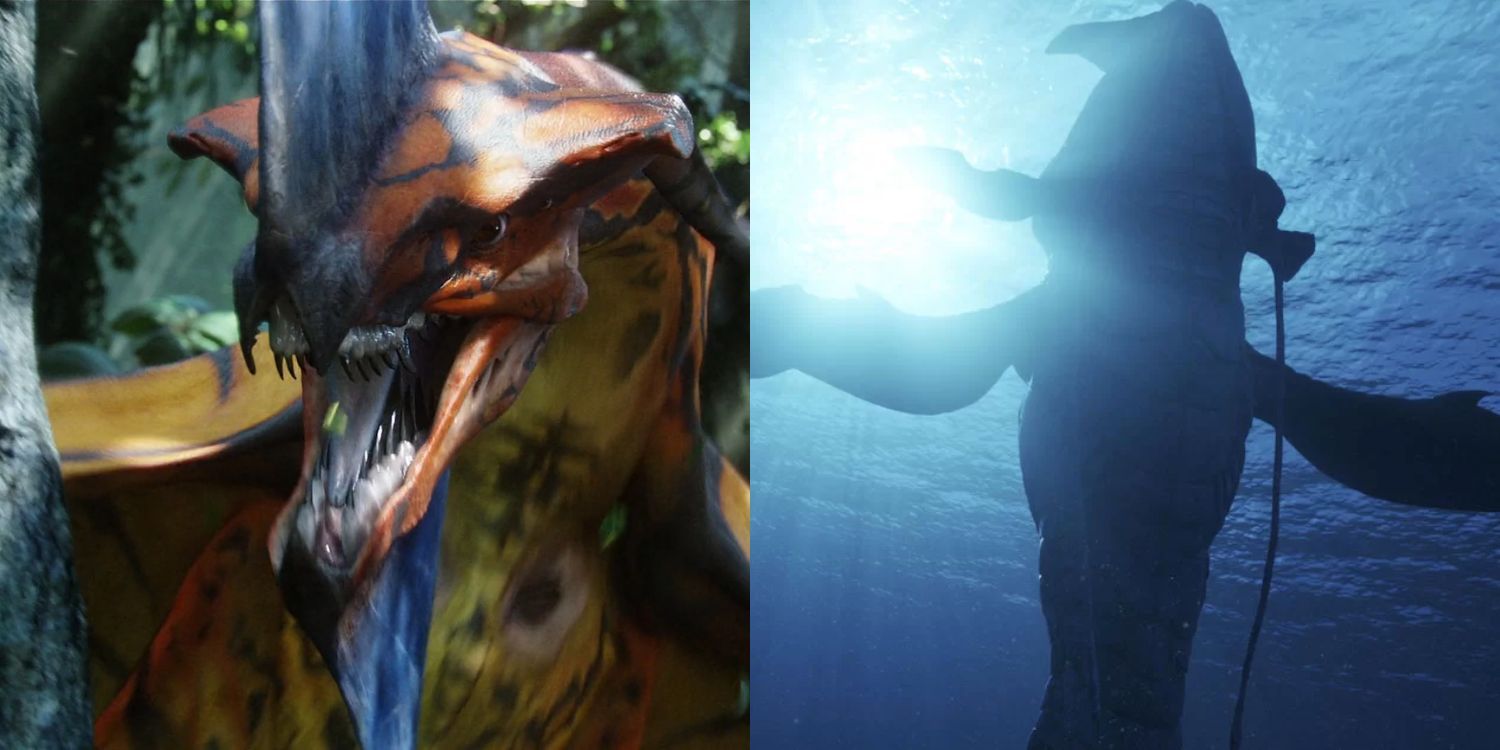
Related
James Cameron’s Avatar: Pandora’s 10 Biggest Creatures, Ranked
Audiences are eager for Avatar: The Way of Water, wherein they could see some of the greatest creatures Pandora has to offer.
Huyuticaya Clan
Only Mentioned In Avatar’s Activist Survival Guide
There are several Na’vi tribes in the Avatar franchise who are only mentioned briefly in various pieces of tie-in media, and as such there is little-to-nothing known about them or their traditions or culture. One such example are the Huyuticaya, who appear to be incredibly distinctive (and would also be great candidates to appear in a future Avatar movie).
The Huyuticaya are mentioned in Avatar’s Activist Survival Guide to have a “tremendous love and respect for viperwolves” (page 105) that they reflect on their streamer or their clan’s flag. The clan also marks their faces, hands, and feet with white warpaint to show they have no fear of death.
Ni’awve Clan
First Mentioned In Avatar Mobile Game
If this interesting Na’vi Avatar theory is correct, the Ni’awve may not even originally be from Pandora. The Ni’awve are widely regarded as the first Na’vi clan, and appropriately reside in an area of Pandora known as the Valley of Origins. They were first mentioned in the Avatar mobile game, though given the fact they’re so integral to Na’vi history they’d be a great choice for the Avatar movies.
When the human Ryan Lorez had a vision near the Tree of Souls, it was this clan that praised him as their savior and taught him the ways of the Na’vi. Their leader Tse’huk also appeared in the game and Jake Sully helped rescue him there.
Kekunan Clan
Appeared In Toruk – The First Flight
The Kekunan are from Toruk – The First Flight and are known for being great aerial hunters and Ikran riders. Known for their colorful attire and culture, this Avatar Na’vi clan often performs sacred dances. They are also the masters of the sky and the greatest of the banshee’s wranglers on Pandora. This is because they begin teaching their children banshee riding at a very early age.
The clan was not revealed until 2015, but examples of their craft skills exist in the first movie, including the battle band worn by Jake Sully. They’re also incredibly important in the myths and legends of other Na’vi tribes like the Omatikaya, as they were the tribe that produced Taronyu, the first banshee rider.
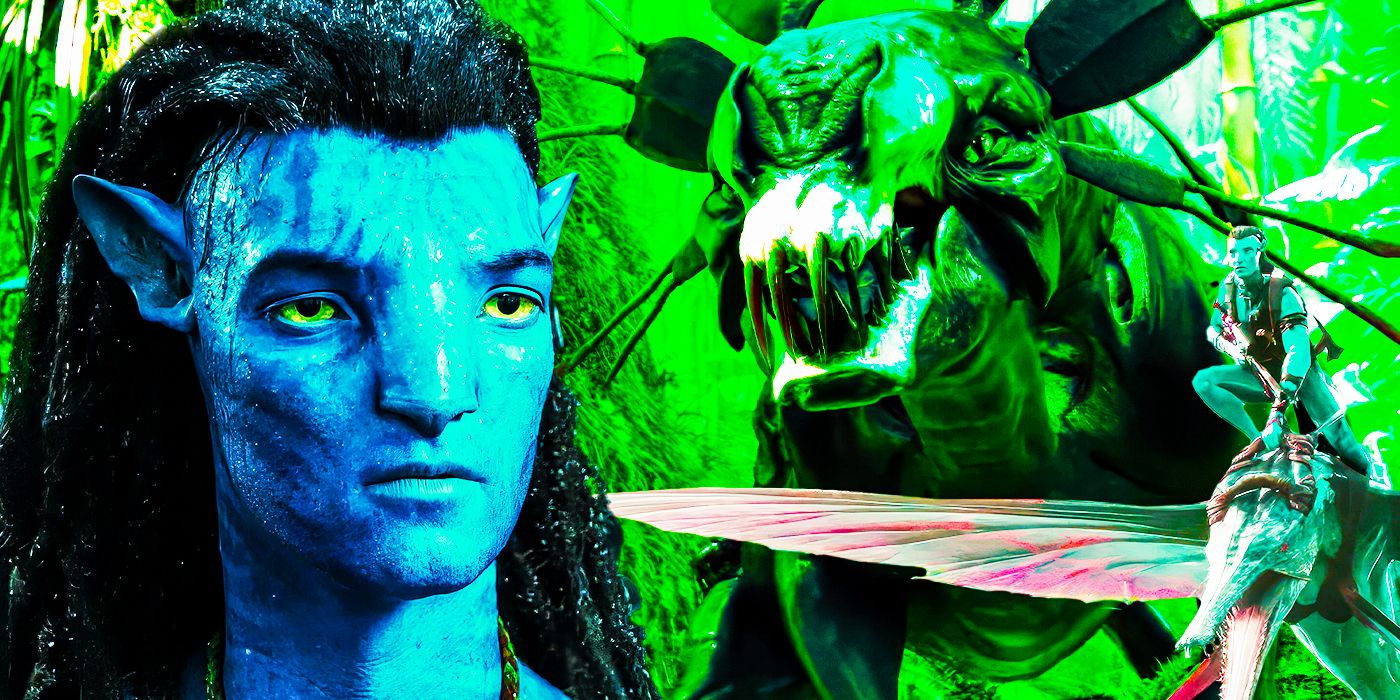
Related
Avatar’s 10 Most Powerful Creatures On Pandora, Ranked
Avatar’s Pandora is brimming with dangerous creatures, but some rank higher than others in terms of how much of a threat they pose in the movies.
Aranahe Clan
Appears In Avatar: Frontiers Of Pandora
The Aranahe Clan makes their first appearance in Avatar: Frontiers of Pandora. This clan is the first to show up in the game and introduces the player to the world of Pandora. They share a strong similarity to the clan from the first game, although they also have a connection to the Kinglor, a moth-like creature on Pandora.
This connection plays into their roles as Weavers as well, as they create items out of the Kinglor’s silk, including weapons. This clan is also not one that is interested in fighting and mostly dismisses the idea of the RDA threat. They mostly have a love for the arts and are immediately dismissive of those who question their ancient ways.
Zeswa Clan
Appears In Avatar: Frontiers Of Pandora
The Zeswa Clan is another one from the Avatar: Frontiers of Pandora game who have no desire to fight the RDA. This clan lives mostly a nomadic life, and they feel they have nothing to fear from the RDA until the villains begin hunting the Zakru, creatures they bond with that provide them with milk. While they don’t desire to fight, they are still fierce and proud warriors, almost to the point of arrogance.
The Zeswa Na’vi tribe live in the Upper Plains and are also masters of direehorse riding. They are also wanderers, but it is easy to find them due to their use of kites. Interestingly, the name of the Zeswa tribe literally translates to “grass” in the language of the Na’vi, with their full name “Zeswa’Sopyu” simply meaning “grass traveller”.
Kame’tire Clan
Appears In Avatar: Frontiers Of Pandora
The Kame’tire Clan is another from the Avatar: Frontiers of Pandora game, and there isn’t much known about them thanks to their secret and mostly paranoid lifestyles. They are healers and herbalists who live close to the Clouded Forest, and they have hidden reasons for remaining away from the other clans, which makes them a clan that others can’t completely trust.
While living in exile, their leader, Mokasa, keeps those from outside their clan away. They were also at one time close to the Sarentu before the mysterious event that caused them to withdraw from society. They would also prefer to remain hidden than fight th RDA.
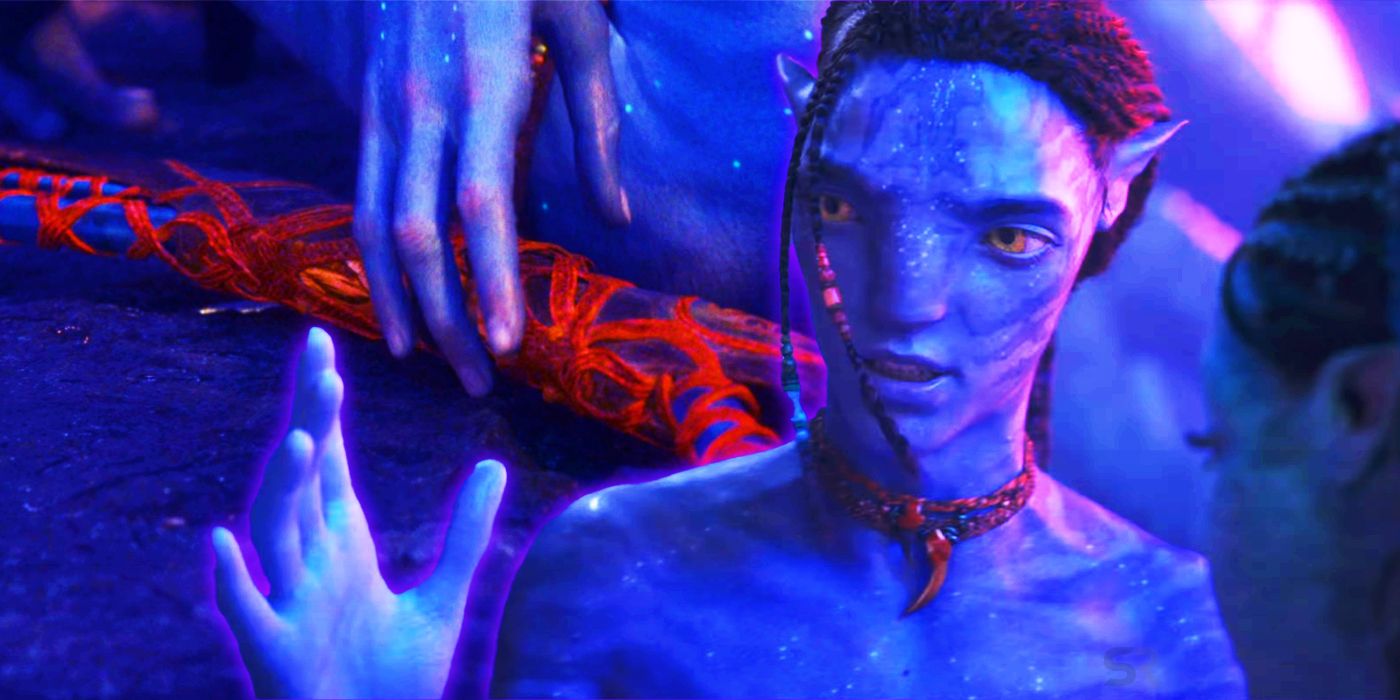
Related
Why Avatars Have 5 Fingers When Na’vi Only Have 4
2009’s Avatar introduced the Na’vi, the indigenous race from the moon of Pandora, who look strikingly humanoid aside from some very clear differences.
Sarentu Clan
Appears In Avatar: Frontiers Of Pandora
The Sarentu Clan was introduced in the Avatar: Frontiers of Pandora game as the clan the player character is a member of. They are also one of the most tragic clans on Pandora. Their entire clan was almost wiped out completely by the RDA in 2139, although the event was covered up. The clan was founded by an Omatikaya Clan member (Entu, the first Toruk Makto), and it was raised as the storytelling clan.
Members of the Sarentu Na’vi tribe were highly respected as diplomats and brought peace often to warring clans. After the RDA massacre, only a few children remained alive and were taken in and raised with lies that their clan abandoned them.
Mangkwan Clan
Mentioned In Avatar: The Last Shadow Comics
The Mangkwan are briefly mentioned in Avatar: The Last Shadow comics in issue No. 4 as an ally clan to the Omatikaya. The Mangkwan took in Ateyo and Artsut after being exiled by Jake Sully. It is unknown why they would accept outcasts into their clan, and little else is known about this Avatar Na’vi clan’s history or culture.
Rey’tanu Clan
Mentioned In Avatar: Reckoning Mobile Game
The Rey’tanu were mentioned briefly in the Avatar: Reckoning mobile game. They primarily rely on agriculture and are said to live in the highlands of Pandora. Nothing is known about their history or culture. However, they live in a more primitive manner than other Avatar Na’vi clans because the biodiversity is weak where they live. They live mostly by grazing rather than hunting.
Tomac’ta Clan
Mentioned In Avatar’s Pandorapedia
The Tomac’ta are mentioned in Avatar’s Pandorapedia for their “tremendous love and respect for banshees.” They also wear streamers in honor of these sacred creatures. There is almost nothing known at all about this Avatar Na’vi clans, as they have never shown up in a movie, game, or comic book
The Ash People
Due To Appear In Avatar: Fire And Ash
Avatar 3, which has the working title of Avatar: Fire and Ash, is set for release in 2025. While little is known yet of the plot, it has been confirmed that Avatar 3 will introduce a new Na’vi clan in the form of the as-yet-unnamed Ash People. The Ash People make a marked difference from other Na’vi tribes. Rather than living in tune with nature, the Ash People seem to have rejected Eywa and the worship of Pandoran wildlife that links other cultures in their species.
Little is known about the Ash People, but they will be antagonists in Avatar 3 and are led by a queen named Varang. Concept art for Varang shows here wearing the severed ponytails of other Na’vi, which suggests the Ash People are one of the most violent tribes seen in any Avatar media far. It’s unknown why they are so associated with fire, though it may be that they inhabit a volcanic area of Pandora.
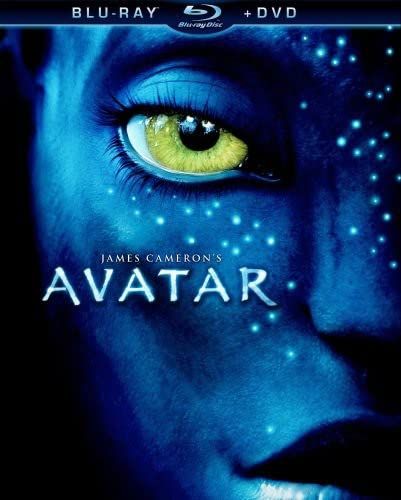
Avatar (2009)
3D TVs had their day, but they didn’t become as big as they could have. That downfall is especially sad when it comes to movies that were made for the format like 2009’s Avatar. Thankfully, Blu-ray high definition is just about as close to the 3D viewing experience you can get at home and the Avatar Original Theatrical Edition Blu-ray is one of the best examples available.
- Studio
- 20th Century Fox
- Run Time
- 162 minutes
- Director
- James Cameron


